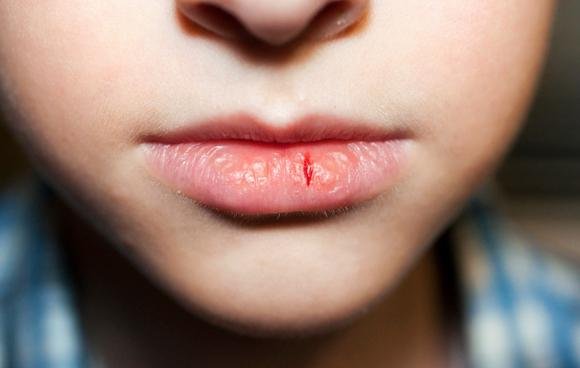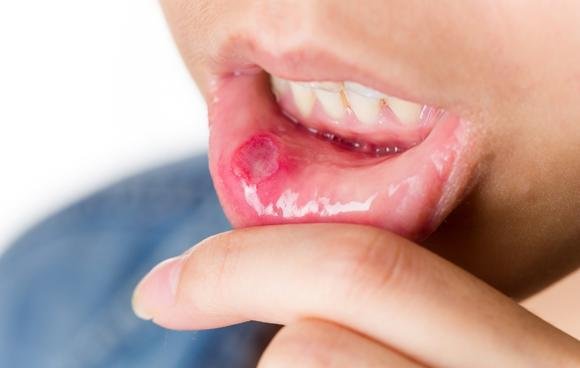Dry mouth is also known as xerostomia. This happens when the salivary glands in the mouth do not produce enough saliva.
Dry mouth in itself is not a serious medical condition. However, sometimes it is a symptom of another cause that needs to be treated. It can also lead to complications such as tooth decay and mouth ulcers. You will learn what causes dry mouth and how to prevent it.1
What causes dry mouth?

Many factors can cause dry mouth. Also, dry mouth alone does not necessarily mean that you have a medical condition.
If you think another condition is the cause, or if you notice other symptoms, it's important to talk to your doctor about a diagnosis and treatment options.
Possible causes of dry mouth:
Dehydration. Dehydration occurs when your body loses too much fluid and does not replenish itself. This can happen due to vomiting, diarrhoea, profuse sweating or blood loss. When you're dehydrated, your body doesn't produce as much saliva as it normally would, so your mouth can naturally dry out.
Medicines. Dry mouth can be a side effect of many types of medication. Some of the most common medications that cause dry mouth are for depression, worry, diarrhea, high blood pressure and asthma.
Antihistamines, diuretics, and some chemotherapy drugs can also reduce saliva production. It is important to talk to your doctor before stopping any medication that you think may be causing your dry mouth.
Radiation therapy. Dry mouth is a common side effect of radiation therapy to the head or neck. Radiation damages the salivary glands, reducing saliva secretion.
Stress and anxiety. When you feel stressed or anxious, your body produces more cortisol, the "stress hormone." An increase in salivary cortisol can change the composition of saliva, resulting in dry mouth.
Aging. Dry mouth is common with aging. This can be due to health problems, certain medications, and changes in your body's ability to process the medications you are taking.
Mouth breathing and snoring. Saliva evaporates when breathing through the mouth. Snoring while yawning can have the same effect. This can cause dry mouth or worsen existing dryness.
Smoking and recreational drug use. Smoking tobacco and weed can reduce saliva production. Methamphetamine use can also cause a very dry mouth.
Diseases that can cause dry mouth
Dry mouth can also be caused by several health conditions, such as:
Diabetes. Dry mouth is a common symptom of type 1 and type 2 diabetes. It is believed to be elevated blood sugar can affect saliva production, which in turn can cause dry mouth. People with diabetes are often prone to dehydration and also take medications that can cause dry mouth.
Oral thrush. Oral thrush is a yeast infection in the mouth. The infection causes inflammation that can damage your salivary glands. This can make it harder for the glands to produce enough saliva.
Nerve damage. An injury, infection, surgery, or stroke that damages nerves in the head or neck can affect the ability of your salivary glands to produce saliva. This can cause dry mouth.
Cystic fibrosis. Cystic fibrosis is a genetic condition that affects the digestive and respiratory systems. This can negatively affect the function of the salivary glands. Medicines used to treat cystic fibrosis can also make dry mouth worse.
Autoimmune disorders. In an autoimmune condition, your immune system adversely affects your body. The most common autoimmune condition associated with dry mouth is Sjogren's syndrome. This disease involves inflammation of the salivary glands, which causes dry mouth. Other autoimmune diseases that can cause dry mouth include HIV/AIDS and rheumatoid arthritis.
Alzheimer's disease. Alzheimer's disease can disrupt a person's ability to stay well hydrated. Also, people with Alzheimer's disease may find it difficult to follow instructions for taking medications for dry mouth.
What are the symptoms of dry mouth?

Dry mouth causes the mouth to feel sticky or dry. Other common symptoms include:
- difficulty swallowing, chewing or speaking
- taste disturbance in food or drink
- burning sensation in the mouth
- chapped lips
- mouth ulcers
- dry tongue
- dry throat
- bad breath
Dry mouth and tooth decay
Saliva has many functions. Thanks to antibacterial proteins, one of the many uses of saliva is to help protect your teeth from harmful bacteria and keep your teeth healthy and cavity-free.
To prevent tooth decay due to dry mouth, you can take the following steps:
- Sip water frequently to flush out excess food, debris, and bacteria.
- Chew sugar-free gum to stimulate saliva production.
- Use a humidifier to increase the humidity level indoors.
- Get your teeth checked regularly to make sure you don't have cavities.
- If your doctor has prescribed artificial saliva or medications for dry mouth, use them as directed.
Why is the mouth dry at night?

Dry mouth at night can be very common, especially in older people. This is because saliva changes as we age. Some components of saliva decrease with age.
If you only notice dry mouth at night, the cause may be nasal obstruction, which causes you to breathe only through your mouth.
Many medications can also cause or worsen dry mouth. The Academy of Oral Medicine says more than 1,100 prescription and over-the-counter medications can cause dry mouth.
Medications that cause dry mouth as a side effect include:
- blood pressure medication
- antidepressants
- anti-anxiety medication
- bronchodilators used to treat conditions such as asthma and chronic obstructive pulmonary disease
Other reasons may be:
- diabetes
- pregnancy
- Sjogren's disease
- chemotherapy
- radiation
- nerve damage
- drug use
Dry mouth at night can be annoying, uncomfortable, and even harmful to your oral health. It is important to treat the cause of dry mouth to maintain your oral health.
Most cases can be treated with lifestyle changes and medication. Less often, dry mouth at night can be a symptom of an underlying condition that will require special treatment.
What nutrients are most often lacking in dry mouth?
Dry mouth can also be related to nutrient deficiencies. While dry mouth can have many causes, certain nutrient deficiencies can contribute to the condition or worsen its symptoms. Here are some nutrients that can cause or worsen dry mouth:
- Water - insufficient water intake or dehydration is one of the most common causes of dry mouth. Water is necessary for the production of saliva, which moistens the mouth.
- Vitamin B12 - its deficiency can cause problems with the oral mucosa, including dry mouth. Vitamin B12 is important for the functioning of the nervous system and the production of red blood cells.
- Zinc - lack of zinc can reduce the production of saliva, which causes dry mouth. Zinc is also important for immune system function and cell growth.
- Omega-3 fatty acids - insufficient consumption of omega-3 fatty acids can disrupt the body's inflammatory processes and contribute to dry mouth.
- Vitamin A - its deficiency can adversely affect the mucous membranes and skin, including the oral mucosa, and cause dry mouth.
- Folic acid (Vitamin B9) – like other B vitamins, folic acid is important for maintaining a healthy oral mucosa. Its deficiency can cause problems with the oral mucosa.
-
Sale Product on saleSUPER OMEGA-3 - Norwegian fish oil with Omega-3, 100+30 capsules
67,90 €Original price was: 67,90 €.47,50 €Current price is: 47,50 €.Rated 5.00 out of 5 based on 5 customer ratings
It is worth noting that dry mouth can be caused not only by a lack of the aforementioned nutrients, but also by other health problems or an inappropriate lifestyle. If you experience dry mouth for a long time, it is important to see a healthcare professional to determine the true cause of the condition and get the right treatment or nutritional advice.
Tips for treating dry mouth at home

Dry mouth is usually a temporary and treatable condition. In most cases, you can prevent and relieve the symptoms of dry mouth at home by doing one or more of the following:
- sip water
- suck on ice cubes
- limit alcohol and caffeine intake
- limit salt and sugar intake
- avoid tobacco or drugs
- use a humidifier in the bedroom while you sleep
- chew sugar-free gum or suck on a sugar-free hard candy
- use over-the-counter toothpastes, rinses, and mints
It is also important to brush and floss daily and have your teeth checked twice a year. Good oral care can help prevent tooth decay and gum disease that can result from dry mouth.
If your dry mouth is caused by a medical condition, additional treatment may be needed. Ask your doctor for more information about your specific condition, treatment options, and long-term outlook.
Dry mouth treatment
Your doctor will probably review any medications you are taking to see if they can cause dry mouth. Your doctor may change one or more prescriptions or recommend a change in dosage.
The doctor may also prescribe artificial saliva or medication to increase saliva production in the mouth.
In the future, ways to restore or regenerate the salivary glands may be available to treat dry mouth, but as of 2016 the review indicated that further research is still needed in this area.
FAQ Part: Dry Mouth
Why does my mouth keep getting dry?
Dry mouth can be caused by a variety of reasons, including dehydration, certain medications, chronic conditions (such as diabetes, Sjögren's syndrome), as well as smoking or drinking alcohol.
How can dry mouth be reduced?
Drink more water, avoid tobacco and alcohol, use moisturizing mouth sprays or saliva-stimulating products, and visit the dentist regularly.
Could dry mouth be a sign of a serious health problem?
Yes, sometimes dry mouth can signal other health problems, such as diabetes or autoimmune diseases. If the dry mouth is persistent and severe, it is recommended to consult a doctor.
What home remedies can help with dry mouth?
Drink more fluids, use moisturizing mouth gels or sprays, and do oral hygiene exercises such as sucking on sugar-free candy or chewing sugar-free gum to stimulate saliva production.
When to see a doctor?
Consult your doctor or dentist if you notice signs of dry mouth.
See your doctor or dentist if you have persistent symptoms such as:
- dry mouth or throat
- thick saliva
- rough tongue
- mouth ulcers
- impaired chewing or swallowing
- altered sense of taste that does not go away
- bad breath that does not improve with good dental hygiene
If you think your medication is causing your dry mouth or if you notice other symptoms of an underlying condition, make an appointment with your doctor.
Your doctor may order blood tests and check the amount of saliva you produce to determine the cause of your dry mouth. Once your doctor diagnoses the cause of your dry mouth, he can suggest treatments.
If you have persistent dry mouth, it is also important to visit your dentist to check for signs of tooth decay.
How find out which vitamins, minerals or other supplements the most appropriate at the moment? Try it free test "Your Day" ! where you will find out needs of the body and you will get personal recommendation!











